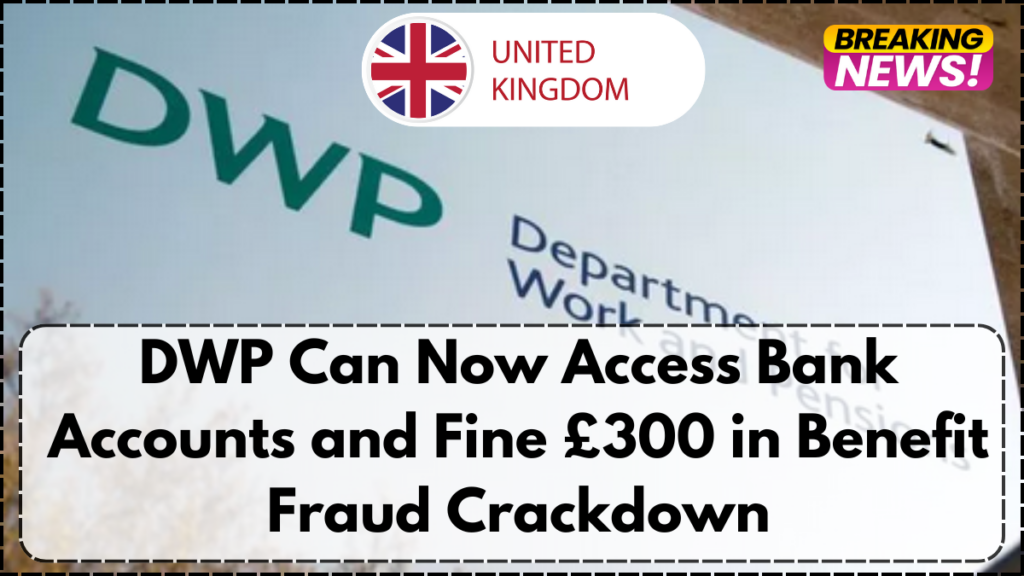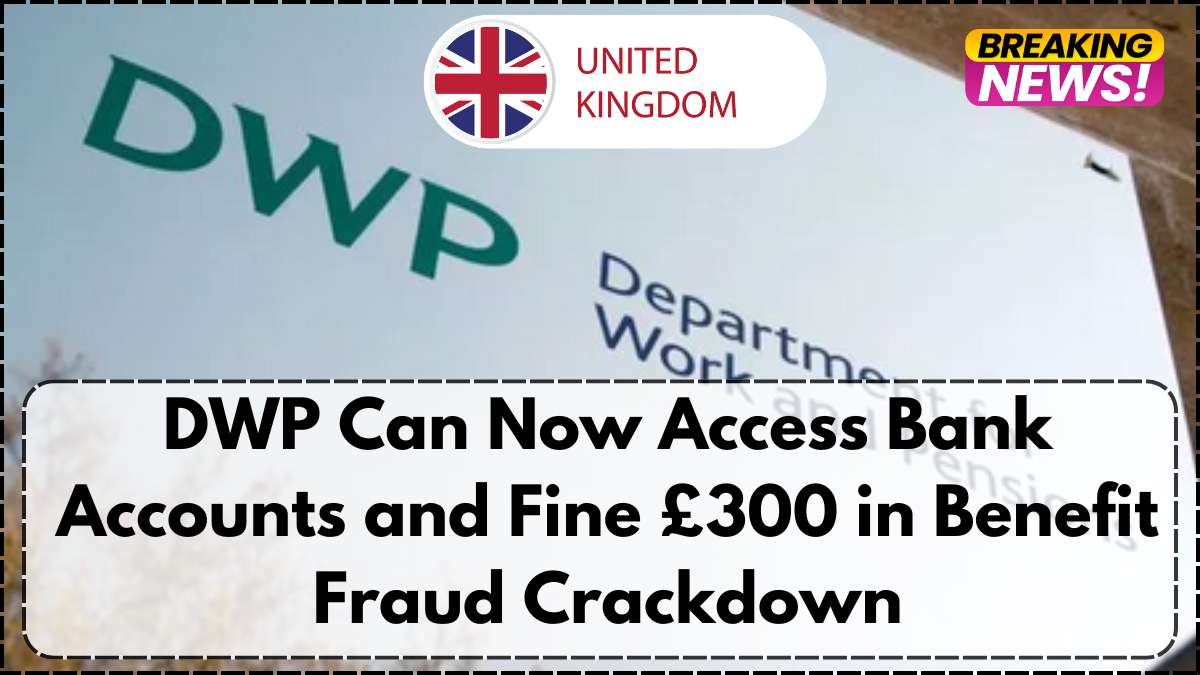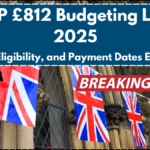In April 2025, the Department for Work and Pensions (DWP) is poised to receive significant new powers aimed at combating benefit fraud. The proposed legislation, titled the Fraud, Error and Debt Bill, is currently under review in Parliament and represents a major policy shift intended to stem the near-�10 billion annual loss due to fraudulent claims and administrative mistakes.

What the Fraud, Error and Debt Bill Proposes
The bill introduces a suite of enhanced tools to detect, prevent, and recover fraudulent claims. Among the key features are:
- Direct access to bank data related to benefit claimants.
- Authority to recover debts directly from bank accounts.
- Legal powers to seize assets from individuals who default on repayments.
Andrew Western, the DWP Minister, emphasized that these new measures are shaped by fraud trends and real case patterns observed in recent years. According to Western, the goal is to “stop fraud before it enters the system” while reinforcing internal checks and training among staff.
Expanded Investigative Capabilities
Investigators will now have the right to request up to three months of bank statements from individuals suspected of fraudulent benefit claims. This will allow case officers to assess whether the claimant has sufficient means to repay any overpaid benefits.
In situations where debt recovery proves difficult, the department can apply to the courts to seize property or other assets. These powers are modeled after those already used by HMRC, which regularly collects data from financial institutions to ensure tax compliance.
Targeting Specific Benefit Systems
One of the primary focuses of these reforms is the Personal Independence Payment (PIP) system, which saw an estimated �90 million lost to fraud and error in the 2023/24 fiscal year. DWP aims to close this gap by implementing tighter verification and detection protocols.
Additionally, awareness training will be provided to case managers and healthcare professionals to help them identify forged documents and other red flags during the claims process.
Parallels with HMRC’s Existing Powers
The DWP’s approach draws clear parallels to HMRC’s data collection practices. As Richard Las, HMRC’s chief investigation officer, explained, HMRC collects annual data from every interest-bearing account in the UK. This includes transaction information from online platforms and merchant acquirers.
These data-gathering efforts help ensure accurate tax reporting and are now serving as a model for DWP’s fraud detection strategy. Importantly, HMRC maintains strict controls on how this information is stored and used—standards that the DWP will be expected to uphold as well.
Key Features of the Fraud, Error and Debt Bill
| Feature | Description |
|---|---|
| Bank Account Monitoring | Investigators can request bank statements for benefit-related assessments. |
| Direct Debt Recovery | Funds can be withdrawn directly from bank accounts. |
| Asset Seizure | Courts may authorize confiscation of assets. |
| Protection for Vulnerable Individuals | Powers used only after failed voluntary repayment efforts. |
| Independent Oversight | Actions taken by trained officers under supervision. |
Safeguards and Rights for Claimants
Georgia Gould, Cabinet Under Secretary, clarified that these powers will only be exercised against those who clearly have the financial means to repay but refuse to do so. Vulnerable claimants will be protected, and all individuals will have avenues for appeal, including:
- Submitting representations
- Requesting an internal review
- Applying to vary court orders
- Appealing to an independent tribunal
These safeguards ensure a fair process while allowing DWP to recover public funds more effectively.
No Access to Daily Spending
It’s important to note that DWP will not have access to claimants’ spending habits or full bank account visibility. According to Minister Western, the intent is strictly to verify the presence of sufficient funds for repayment, not to monitor personal expenditures.
Broader Consultation and Feedback
The legislation has been shaped through consultation with a wide range of stakeholders, including banks, debt charities, civil liberty organizations, and academic experts. This collaborative approach aims to integrate best practices from both the public and private sectors.
Conclusion
The Fraud, Error and Debt Bill marks a major milestone in the UK government’s ongoing effort to reduce benefit fraud and protect taxpayer money. With new powers modeled on HMRC’s proven systems and a firm commitment to safeguarding individual rights, the DWP aims to create a more robust and accountable welfare system. As this bill moves through Parliament in 2025, both benefit claimants and the broader public should stay informed about how these changes could affect them.
FAQs
What is the purpose of the Fraud, Error and Debt Bill?
The bill aims to reduce benefit fraud and error, which currently costs the UK billions annually, by giving the DWP new tools for investigation and debt recovery.
Can the DWP see how I spend my money?
No, the DWP cannot view your day-to-day spending. They can only request bank statements to assess your ability to repay overpaid benefits.
What if I disagree with a repayment decision?
You have the right to challenge it. You can submit representations, request a review, apply to vary a court order, or appeal to a tribunal.
Are vulnerable individuals protected under this bill?
Yes. Powers will only be used after voluntary efforts fail, and vulnerable individuals are explicitly protected.
When will these changes take effect?
As of April 2025, the bill is under discussion in Parliament. If passed, implementation is expected later this year.
For More Information Click Here
Pari is a passionate writer known for captivating stories that blend imagination and reality. Inspired by travel, history, and everyday moments, Pari crafts narratives that resonate deeply with readers.




